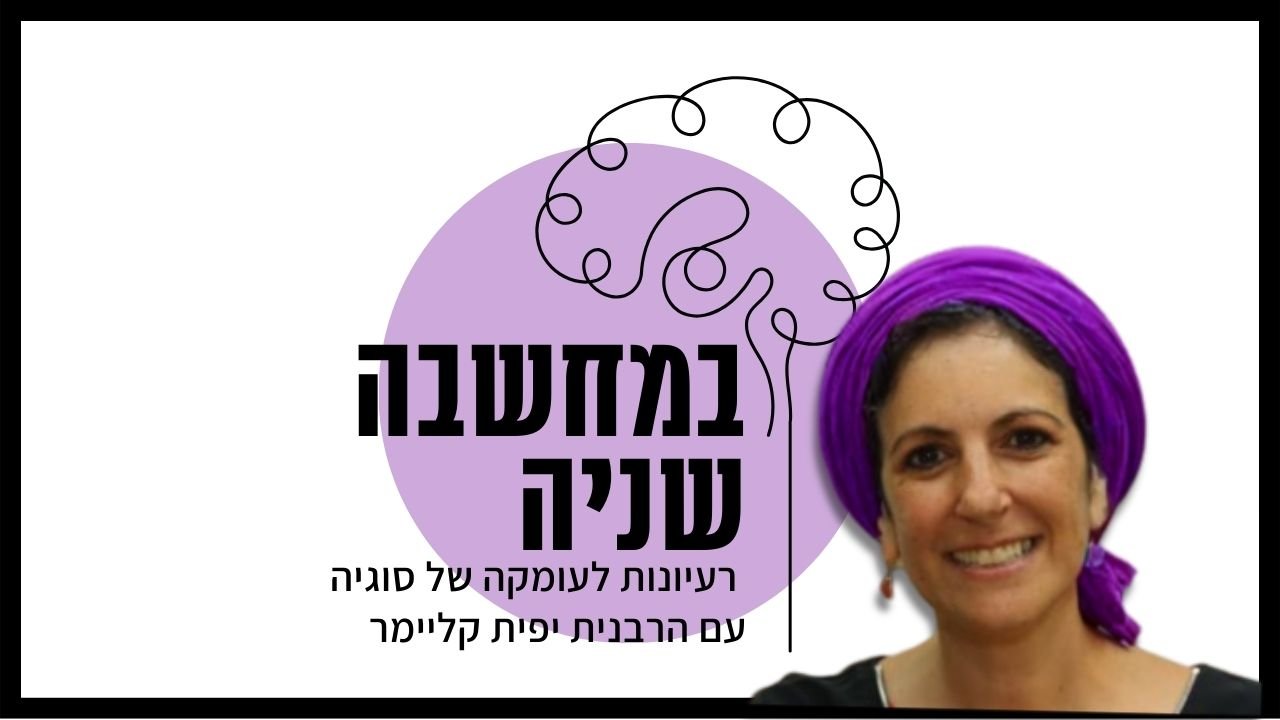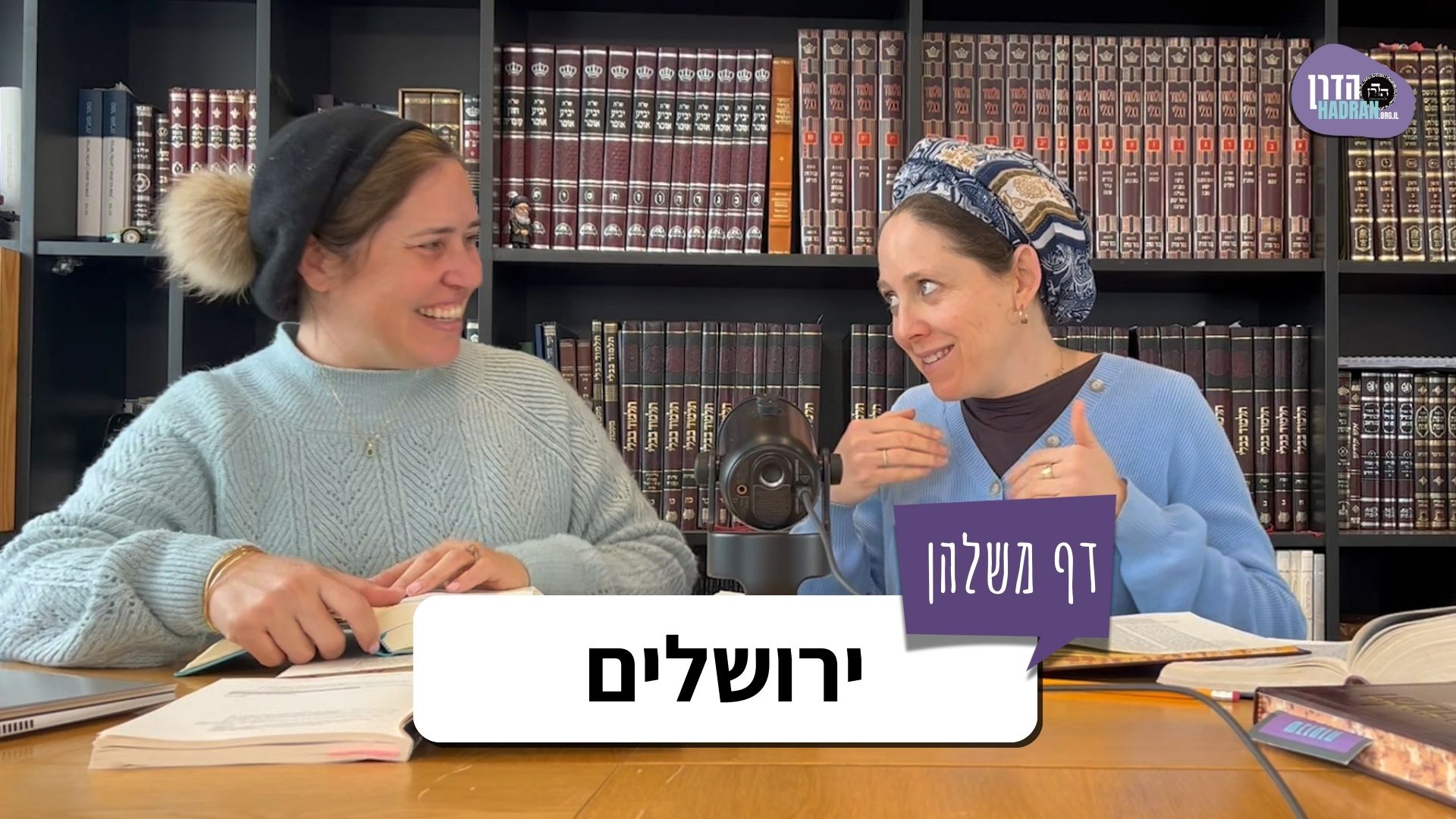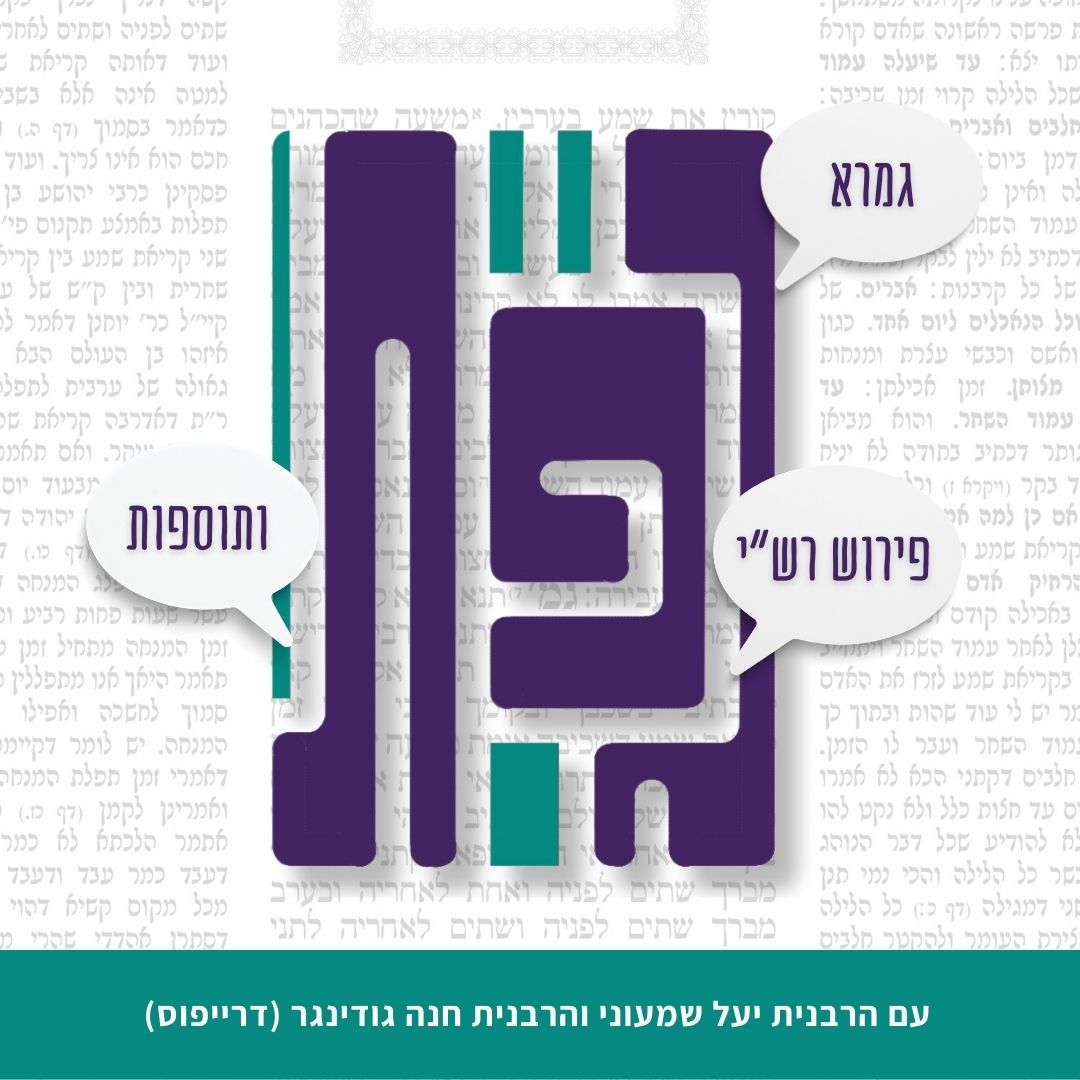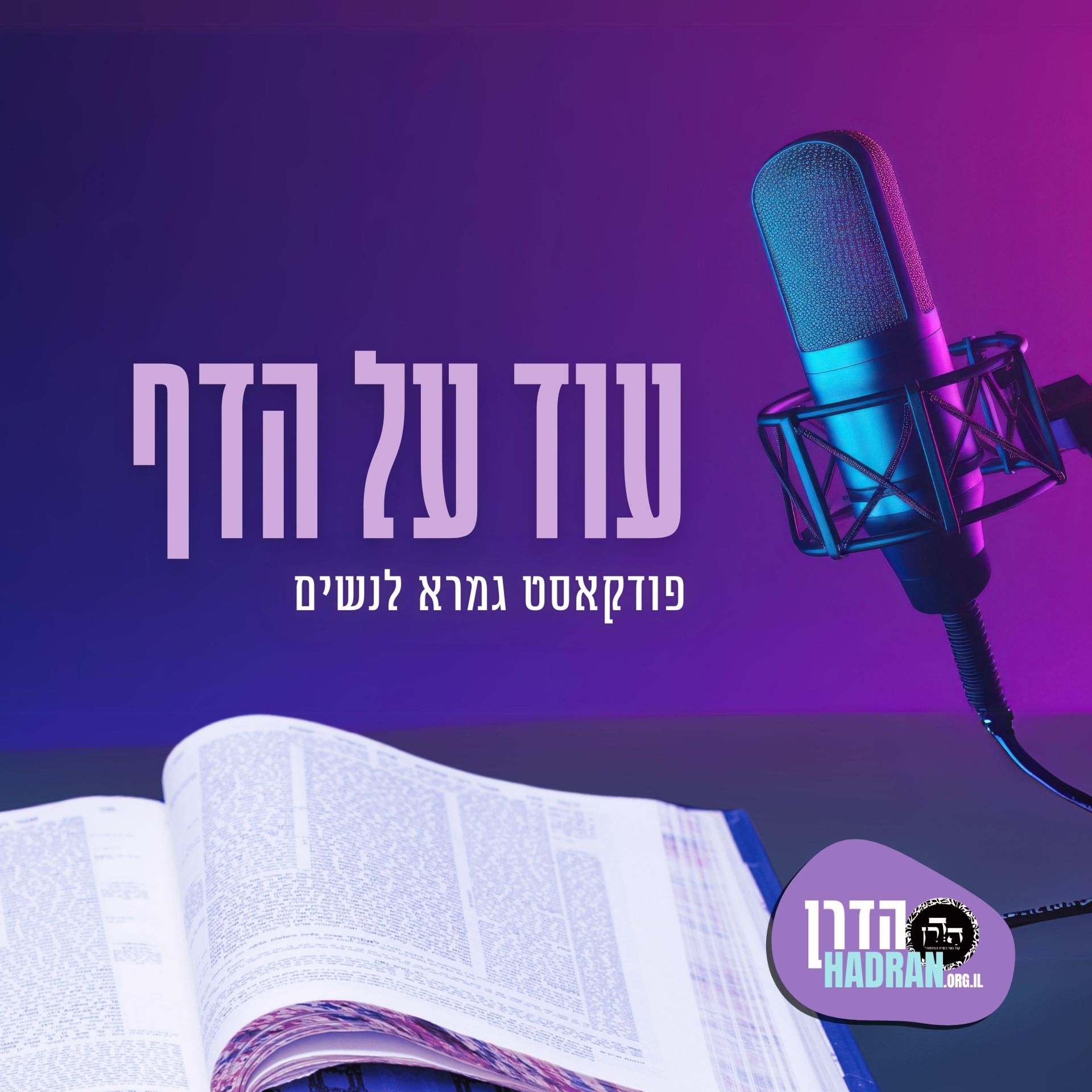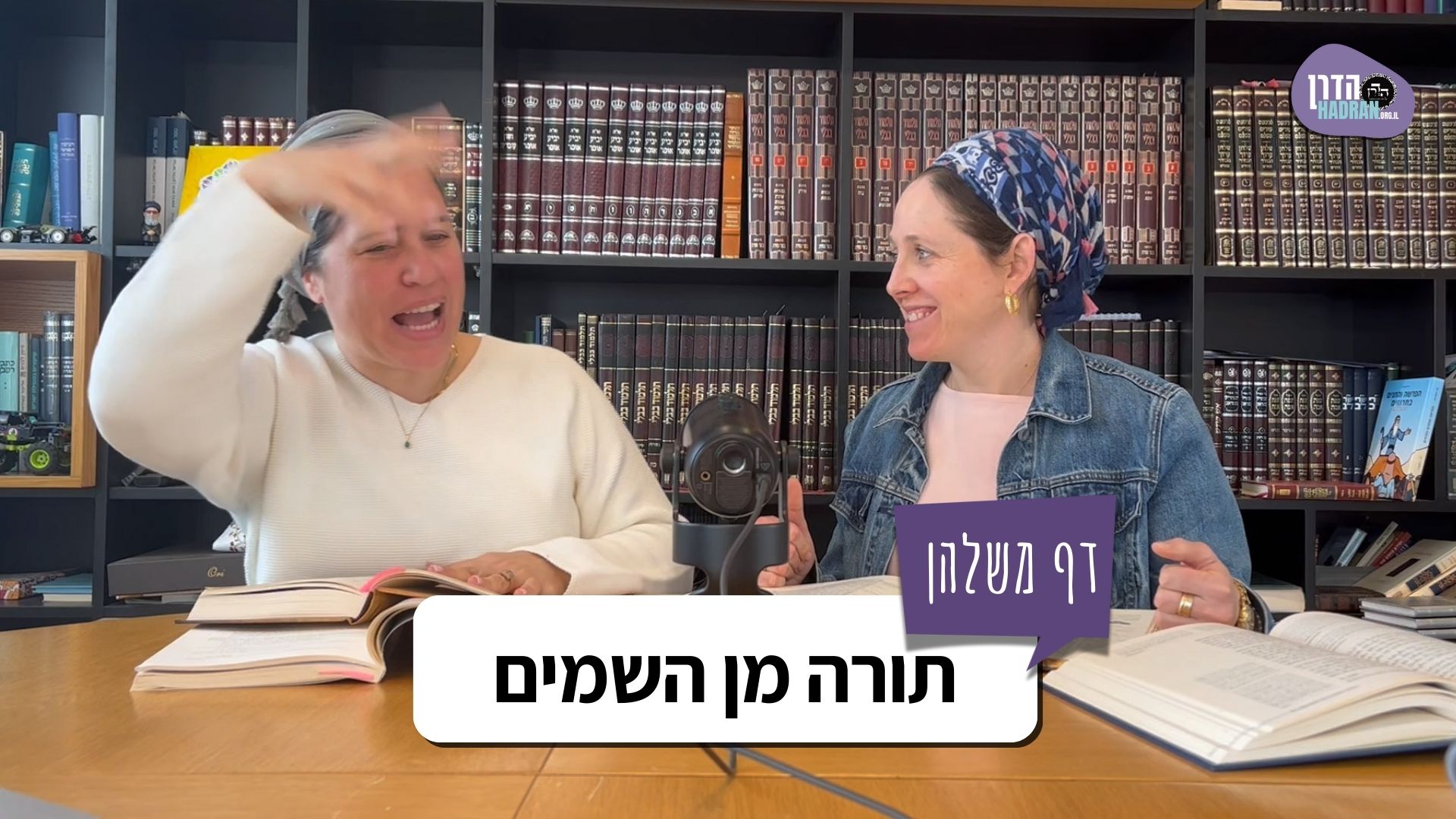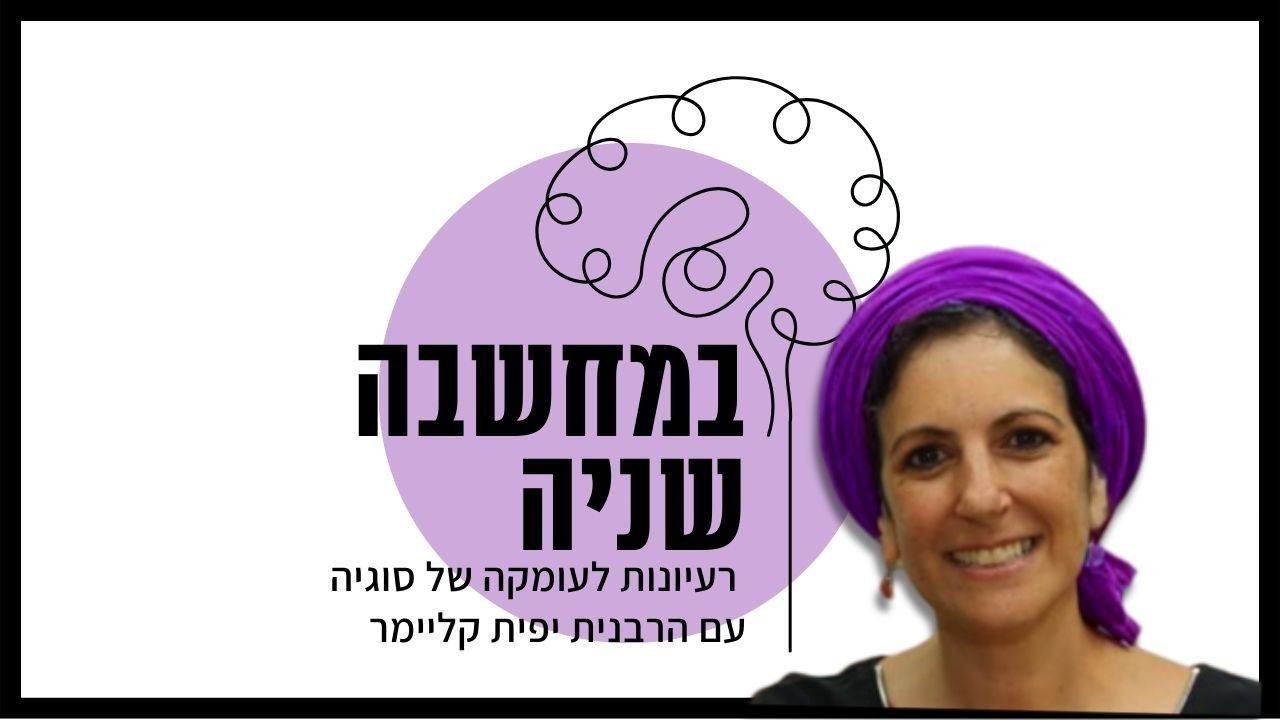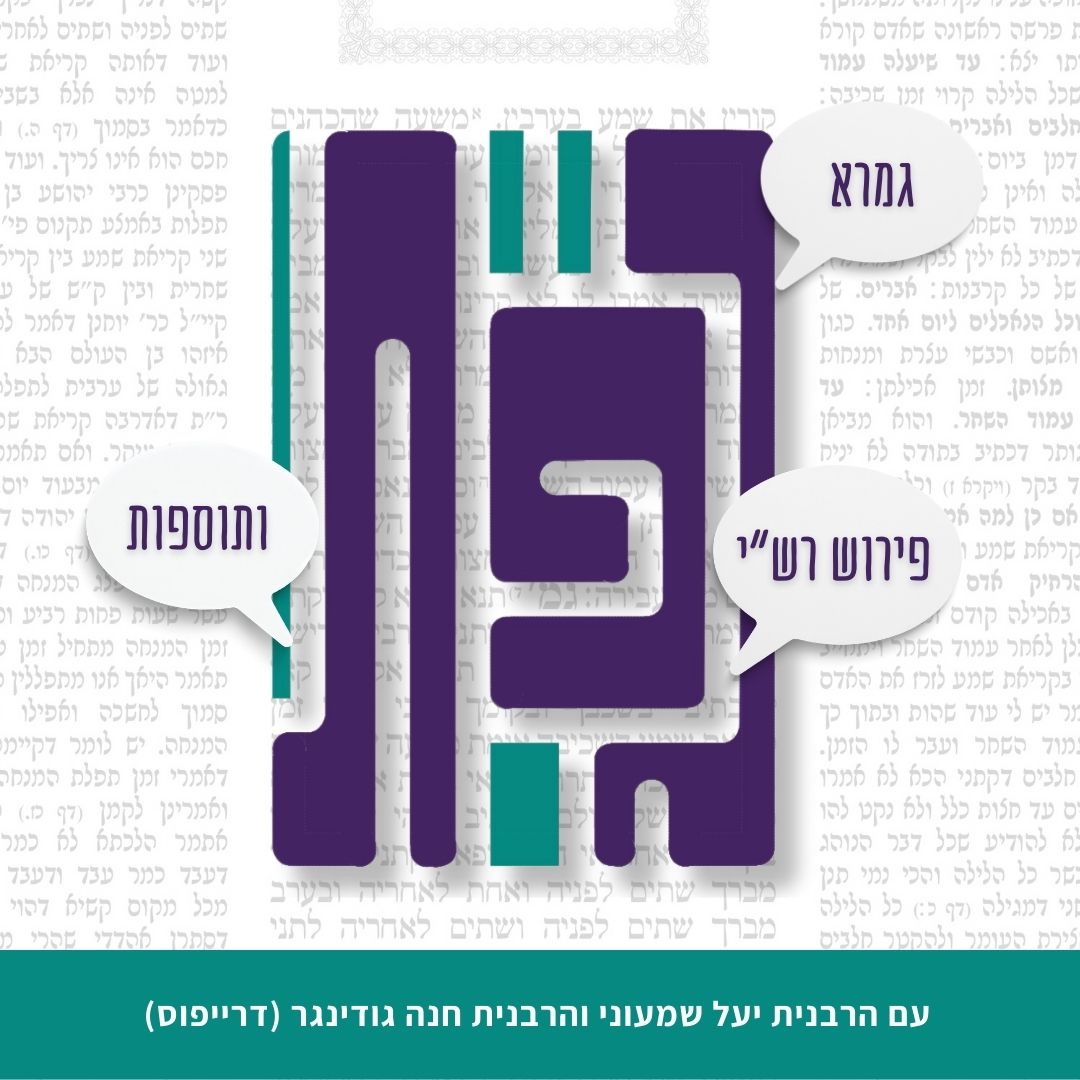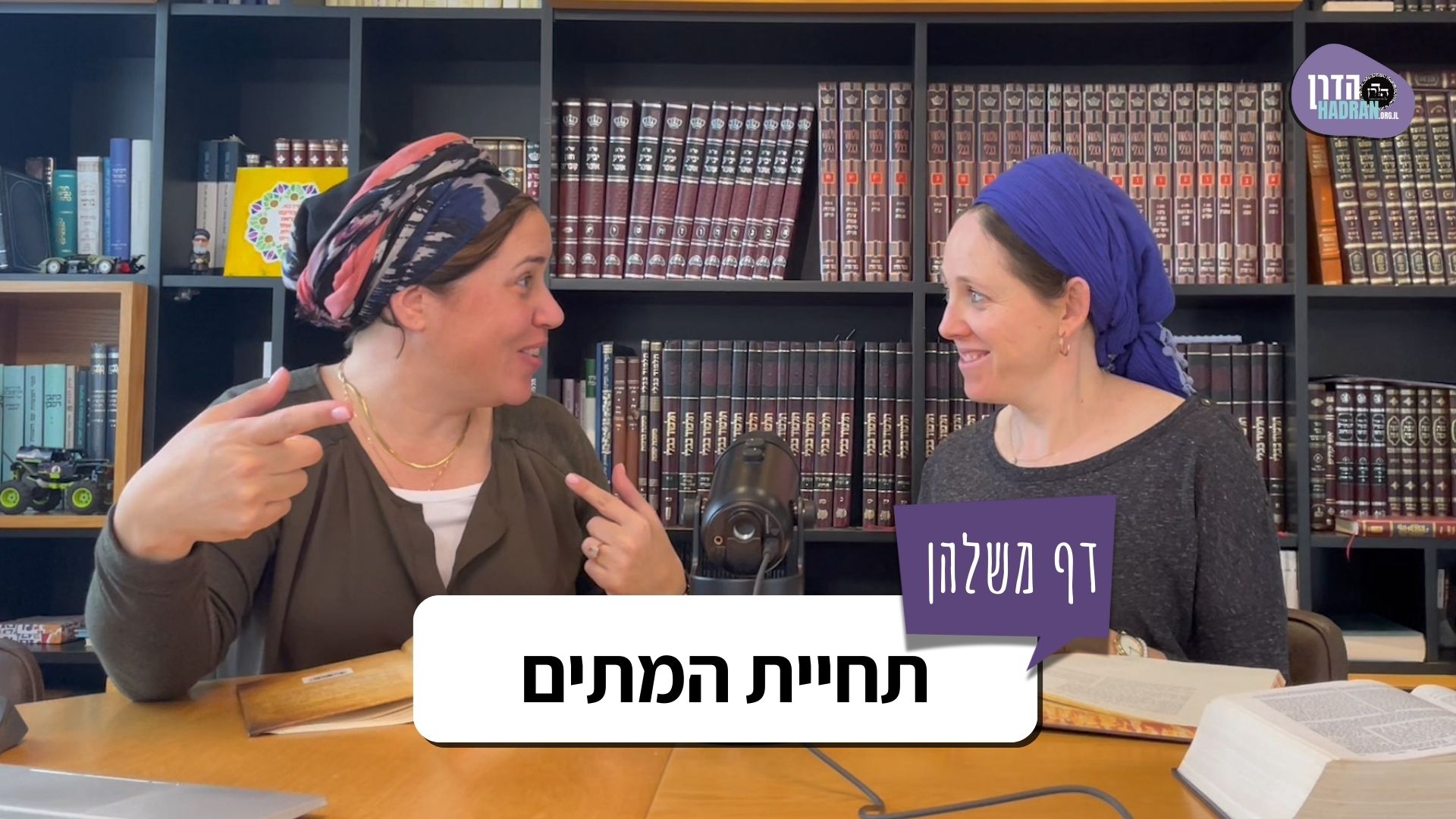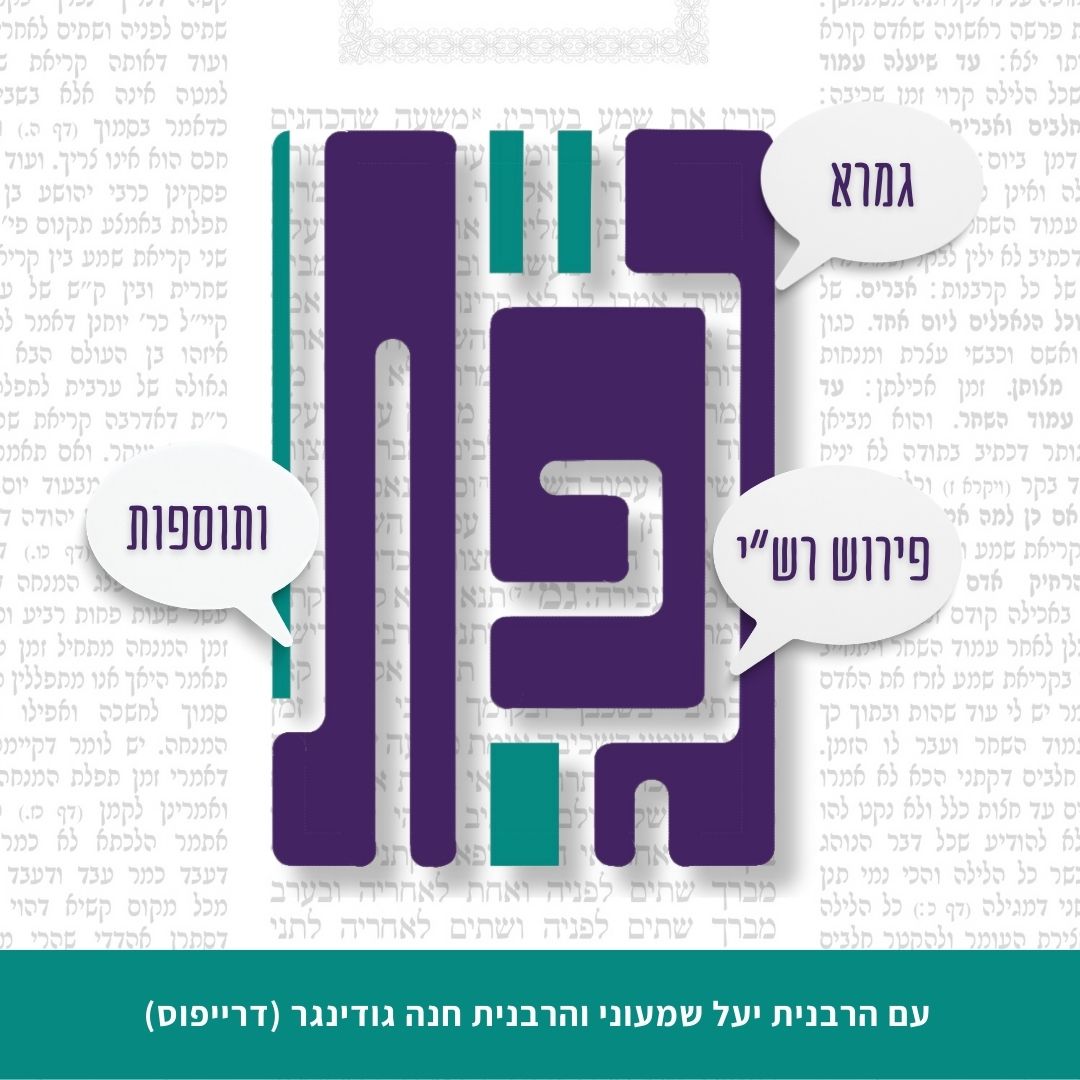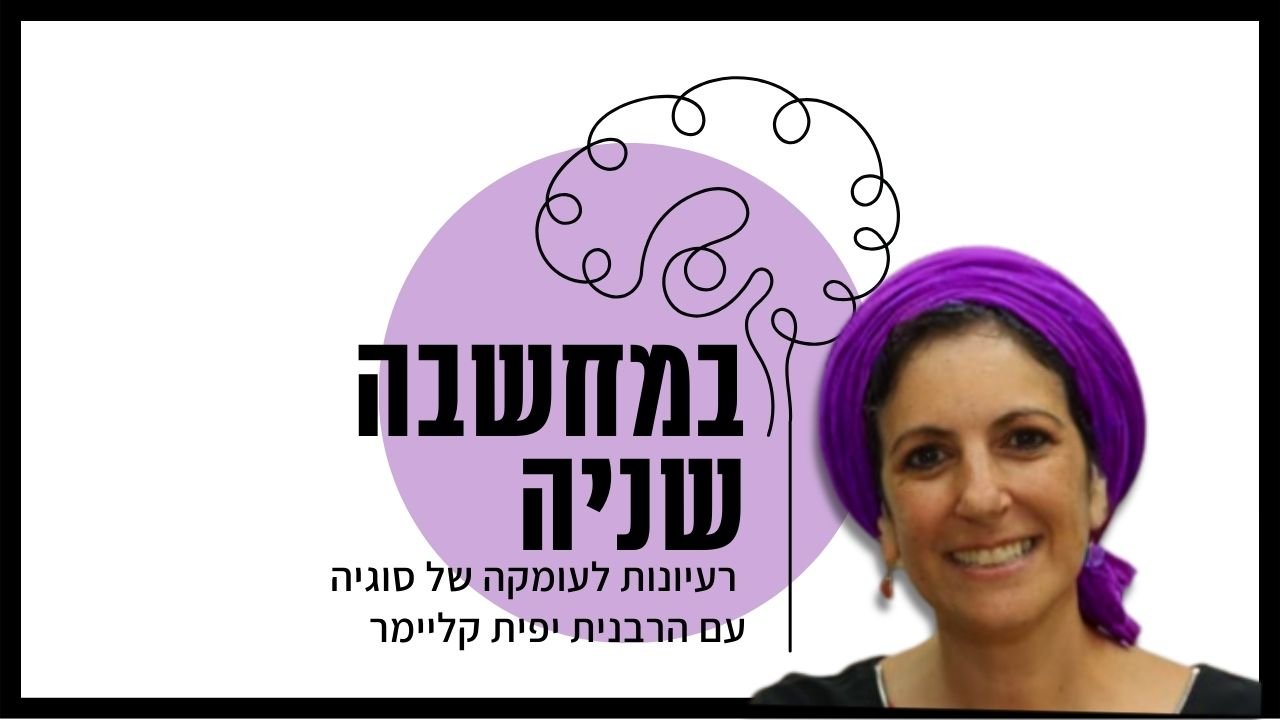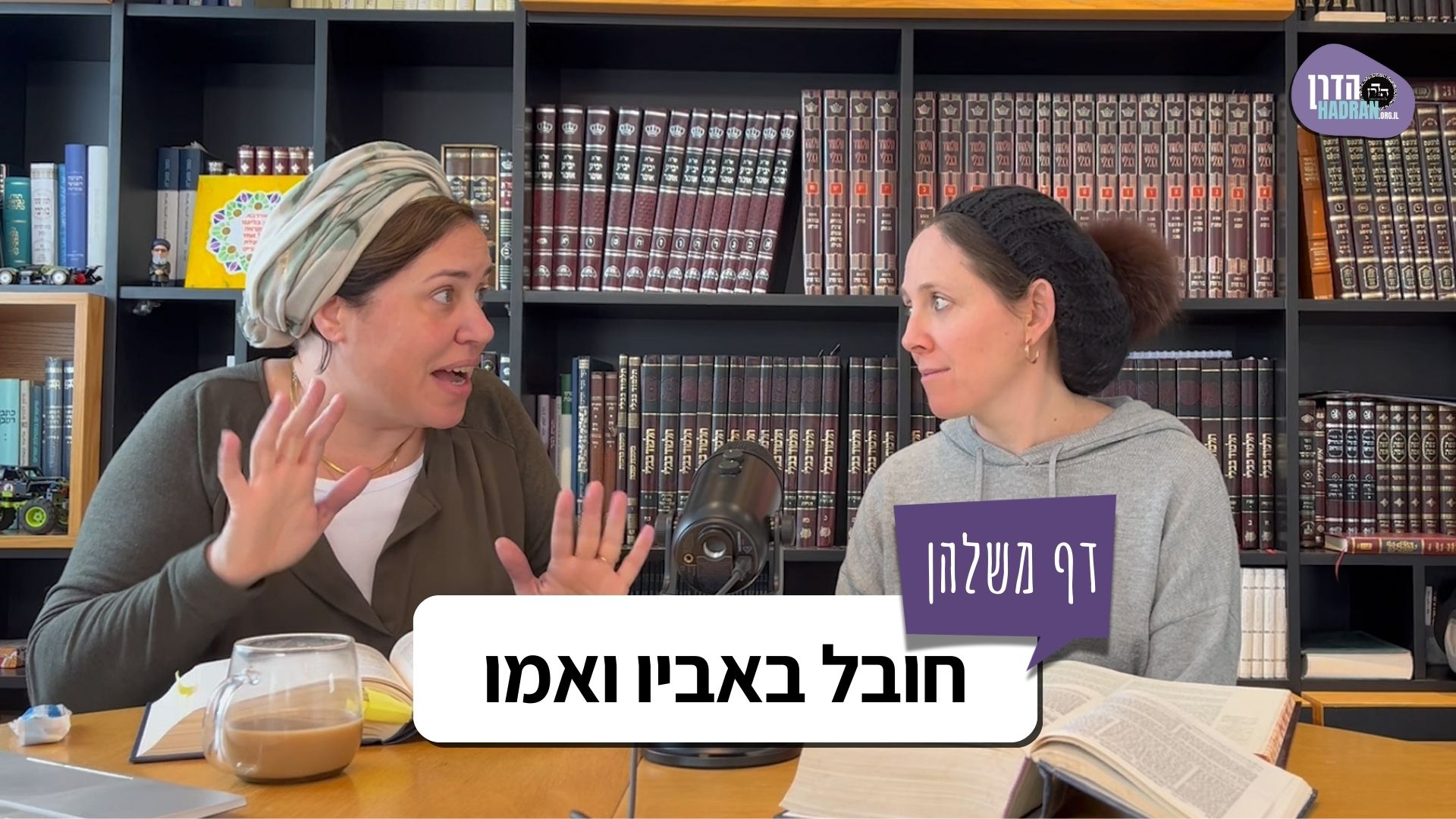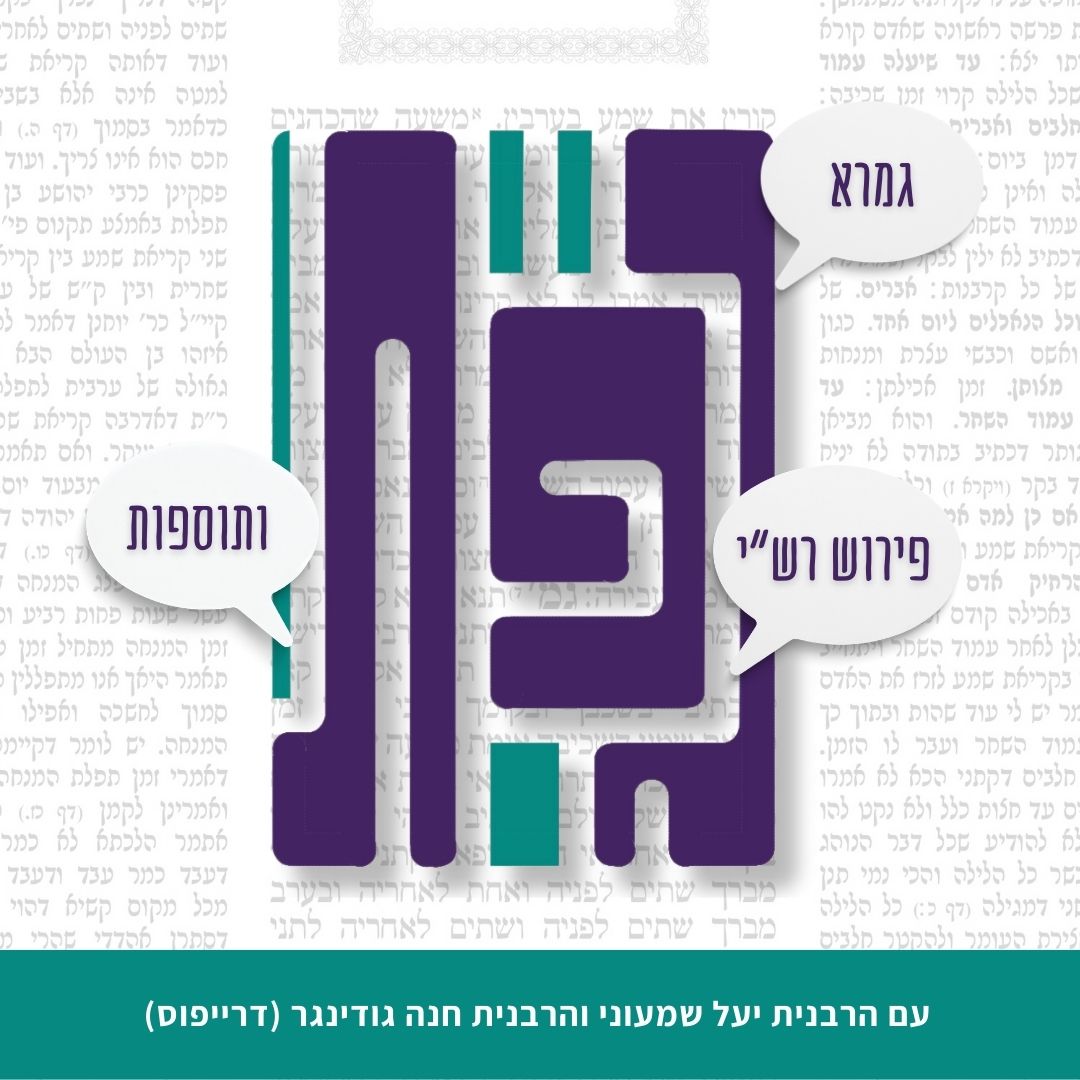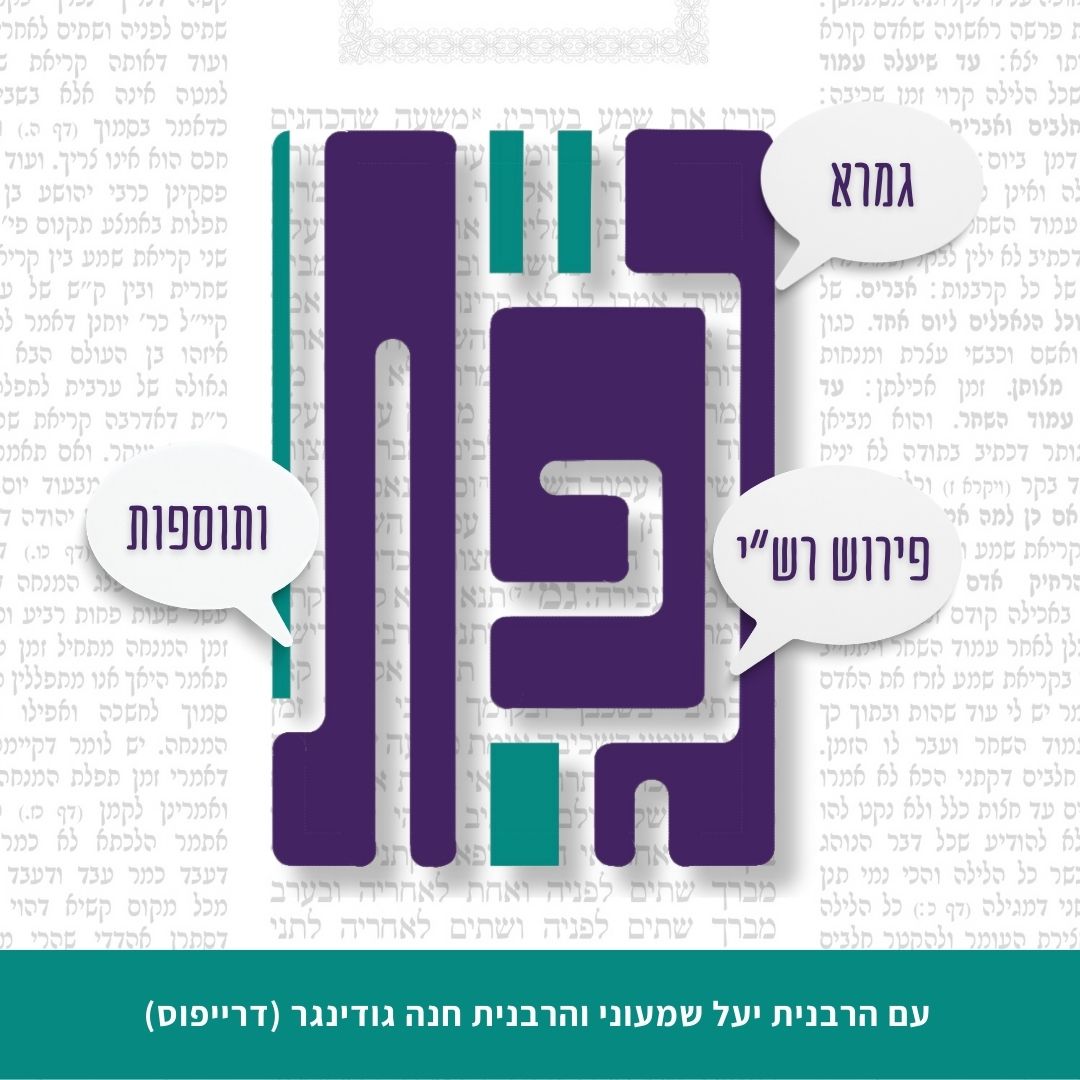סנהדרין קז
אוֹכֵל לַחְמִי הִגְדִּיל עָלַי עָקֵב״.
who did eat of my bread, has lifted his heel against me” (Psalms 41:10). Bread is a metaphor for Torah knowledge.
אָמַר רַב יְהוּדָה אָמַר רַב: לְעוֹלָם אַל יָבִיא אָדָם עַצְמוֹ לִידֵי נִסָּיוֹן, שֶׁהֲרֵי דָּוִד מֶלֶךְ יִשְׂרָאֵל הֵבִיא עַצְמוֹ לִידֵי נִסָּיוֹן וְנִכְשָׁל. אָמַר לְפָנָיו: רִבּוֹנוֹ שֶׁל עוֹלָם, מִפְּנֵי מָה אוֹמְרִים ״אֱלֹהֵי אַבְרָהָם, אֱלֹהֵי יִצְחָק וֵאלֹהֵי יַעֲקֹב״, וְאֵין אוֹמְרִים ״אֱלֹהֵי דָוִד״? אָמַר: אִינְהוּ מִינְּסוּ לִי וְאַתְּ לָא מִינַּסֵּית לִי. אָמַר לְפָנָיו: רִבּוֹנוֹ שֶׁל עוֹלָם, בְּחָנֵנִי וְנַסֵּנִי, שֶׁנֶּאֱמַר: ״בְּחָנֵנִי ה׳ וְנַסֵּנִי וְגוֹ׳״.
§ Apropos Ahithophel, the Gemara relates the events that led to his death. Rav Yehuda says that Rav says: A person should never bring himself to undergo an ordeal, as David, king of Israel, brought himself to undergo an ordeal and failed. David said before God: Master of the Universe, for what reason does one say in prayer: God of Abraham, God of Isaac, and God of Jacob, and one does not say: God of David? God said to David: They have undergone ordeals before Me, and you have not undergone an ordeal before Me. David said before Him: Examine me and subject me to an ordeal, as it is stated: “Examine me, Lord, and subject me to an ordeal; try my kidneys and my heart” (Psalms 26:2).
אֲמַר: מְינַסֵּינָא לָךְ, וְעָבֵידְנָא מִילְּתָא בַּהֲדָךְ, דִּלְדִידְהוּ לָא הוֹדַעְתִּינְהוּ, וְאִילּוּ אֲנָא קָא מוֹדַעְנָא לָךְ דִּמְנַסֵּינָא לָךְ בִּדְבַר עֶרְוָה. מִיָּד, ״וַיְהִי לְעֵת הָעֶרֶב וַיָּקׇם דָּוִד מֵעַל מִשְׁכָּבוֹ וְגוֹ׳״.
God said to him: I will subject you to an ordeal, and I will perform a matter for you that I did not perform for the Patriarchs, as for them, I did not inform them of the nature of the ordeal, while I am informing you that I will subject you to an ordeal involving a matter of a married woman, with whom relations are forbidden. Immediately, it is written: “And it came to pass one evening that David rose from his bed” (II Samuel 11:2).
אָמַר רַב יְהוּדָה: שֶׁהָפַךְ מִשְׁכָּבוֹ שֶׁל לַיְלָה לְמִשְׁכָּבוֹ שֶׁל יוֹם, וְנִתְעַלְּמָה מִמֶּנּוּ הֲלָכָה. אֵבֶר קָטָן יֵשׁ בָּאָדָם, מַשְׂבִּיעוֹ – רָעֵב, וּמַרְעִיבוֹ – שָׂבֵעַ.
Rav Yehuda says: Once David heard the nature of his ordeal, he sought to prevent himself from experiencing lust. He transformed his nighttime bed into his daytime bed, i.e., he engaged in intercourse with his wives during the day, in an attempt to quell his lust. But a halakha, i.e., a Torah statement, escaped him: There is a small limb in man that he employs in sexual intercourse. If he starves the limb, and does not overindulge, it is satiated; but if he satiates the limb and overindulges in sexual intercourse, it is starving, and desires more. Therefore, his plan had the opposite effect.
״וַיִּתְהַלֵּךְ עַל גַּג בֵּית הַמֶּלֶךְ וַיַּרְא אִשָּׁה רוֹחֶצֶת מֵעַל הַגָּג וְהָאִשָּׁה טוֹבַת מַרְאֶה מְאֹד״. בַּת שֶׁבַע הֲוָה קָא חָיְיפָא רֵישָׁא תּוּתֵי חַלְּתָא. אֲתָא שָׂטָן, אִידְּמִי לֵיהּ כְּצִיפַּרְתָּא. פְּתַק בֵּיהּ גִּירָא, פַּתְקַהּ לְחַלְּתָא, אִיגַּלַּיה וְחַזְיַיהּ.
The verse states: “And he walked upon the roof of the king’s house; from the roof he saw a woman bathing, and the woman was very fair to look upon” (II Samuel 11:2). Bathsheba was shampooing her head behind a beehive, which concealed her from sight. Satan came and appeared to David as a bird. David shot an arrow at the bird, the arrow severed the beehive, Bathsheba was exposed, and David saw her.
מִיָּד: ״וַיִּשְׁלַח דָּוִד וַיִּדְרֹשׁ לָאִשָּׁה וַיֹּאמֶר הֲלוֹא זֹאת בַּת שֶׁבַע בַּת אֱלִיעָם אֵשֶׁת אוּרִיָּה הַחִתִּי. וַיִּשְׁלַח דָּוִד מַלְאָכִים וַיִּקָּחֶהָ וַתָּבוֹא אֵלָיו וַיִּשְׁכַּב עִמָּהּ וְהִיא מִתְקַדֶּשֶׁת מִטֻּמְאָתָהּ וַתָּשׇׁב אֶל בֵּיתָהּ״. וְהַיְינוּ דִּכְתִיב: ״בָּחַנְתָּ לִבִּי פָּקַדְתָּ לַּיְלָה צְרַפְתַּנִי בַל תִּמְצָא זַמֹּתִי בַּל יַעֲבׇר פִּי״. אָמַר: אִיכּוֹ זְמָמָא נְפַל בְּפוּמֵּיהּ דְּמַאן דְּסָנֵי לִי, וְלָא אֲמַר כִּי הָא מִילְּתָא!
Immediately, it is written: “And David sent and inquired after the woman. And one said: Is not this Bathsheba, daughter of Eliam, the wife of Uriah the Hittite? And David sent messengers, and took her, and she came to him, and he lay with her, for she was purified from her impurity, and then she returned to her house” (II Samuel 11:3–4). And that is the meaning of that which is written: “You have proved my heart; You have visited me in the night: You have tried me, but You find nothing; let no presumptuous thought pass my lips” (Psalms 17:3). David said: Oh, that a muzzle would have fallen upon the mouth of the one who hates me, a euphemism for his own mouth, and I would not have said anything like that and I would have withstood the ordeal.
דָּרֵשׁ רָבָא: מַאי דִּכְתִיב ״לַמְנַצֵּחַ לְדָוִד בַּה׳ חָסִיתִי אֵיךְ תֹּאמְרוּ לְנַפְשִׁי נוּדִי הַרְכֶם צִפֹּר״? אָמַר דָּוִד לִפְנֵי הַקָּדוֹשׁ בָּרוּךְ הוּא: רִבּוֹנוֹ שֶׁל עוֹלָם, מְחוֹל לִי עַל אוֹתוֹ עָוֹן שֶׁלֹּא יֹאמְרוּ ״הַר שֶׁבָּכֶם צִפּוֹר נִדְּדַתּוּ״.
Rava taught: What is the meaning of that which is written: “To the leader, of David. In the Lord I put my trust; how can you say to my soul: Flee like a bird to your mountain” (Psalms 11:1)? David said before the Holy One, Blessed be He: Master of the Universe, pardon me for that sin with Bathsheba so that the wicked people will not say: The mountain that is among you, i.e., the luminary of the generation, David, was driven from the world due to a bird that led to his transgression.
דָּרֵשׁ רָבָא, מַאי דִּכְתִיב: ״לְךָ לְבַדְּךָ חָטָאתִי וְהָרַע בְּעֵינֶיךָ עָשִׂיתִי לְמַעַן תִּצְדַּק בְּדׇבְרֶךָ תִּזְכֶּה בְשׇׁפְטֶךָ״? אָמַר דָּוִד לִפְנֵי הַקָּדוֹשׁ בָּרוּךְ הוּא: גַּלְיָא וִידִיעָא קַמָּךְ, דְּאִי בְּעַאי לְמִכְפְּיֵיהּ לְיִצְרַי הֲוָה כָּיֵיפְינָא, אֶלָּא אָמֵינָא דְּלָא לֵימְרוּ ״עַבְדָּא זַכְיֵהּ לְמָרֵיהּ״.
Rava taught: What is the meaning of that which is written: “Against You, only You, have I sinned, and done what is evil in Your eyes; that You are justified when You speak, and right when You judge” (Psalms 51:6)? David said before the Holy One, Blessed be He: It is revealed and known before You that if I sought to suppress my evil inclination, I would have suppressed it; but I said: I will sin, so that they will not say a servant overcame his master and withstood the ordeal even though God said that he would not.
דָּרֵשׁ רָבָא: מַאי דִּכְתִיב ״כִּי אֲנִי לְצֶלַע נָכוֹן וּמַכְאוֹבִי נֶגְדִּי תָמִיד״? רְאוּיָה הָיְתָה בַּת שֶׁבַע בַּת אֱלִיעָם לְדָוִד מִשֵּׁשֶׁת יְמֵי בְּרֵאשִׁית, אֶלָּא שֶׁבָּאת עָלָיו בְּמַכְאוֹב. וְכֵן תָּנָא דְּבֵי רַבִּי יִשְׁמָעֵאל: רְאוּיָה הָיְתָה לְדָוִד בַּת שֶׁבַע בַּת אֱלִיעָם, אֶלָּא שֶׁאֲכָלָהּ פַּגָּה.
Rava taught: What is the meaning of that which is written: “For I am ready to stumble [letzela] and my pain is always before me” (Psalms 38:18)? Bathsheba, daughter of Eliam, was designated as fit for David from the six days of Creation. Rava interprets that the term letzela is referring to Eve, who was taken from the side [tzela] of Adam, the first man, and explains that she was destined for him, just as Eve was destined for Adam. But she came to him through pain. And likewise, the school of Rabbi Yishmael taught: Bathsheba, daughter of Eliam, was designated as fit for David, but he partook of her unripe, before the appointed time. David would have ultimately married her in a permitted manner after the death of Uriah.
דָּרֵשׁ רָבָא: מַאי דִּכְתִיב, ״וּבְצַלְעִי שָׂמְחוּ וְנֶאֱסָפוּ נֶאֶסְפוּ עָלַי נֵכִים [וְלֹא יָדַעְתִּי] קָרְעוּ וְלֹא דָמּוּ״? אָמַר דָּוִד לִפְנֵי הַקָּדוֹשׁ בָּרוּךְ הוּא: רִבּוֹנוֹ שֶׁל עוֹלָם, גָּלוּי וְיָדוּעַ לְפָנֶיךָ שֶׁאִם הָיוּ קוֹרְעִין בְּשָׂרִי לֹא הָיָה דָּמִי שׁוֹתֵת.
Rava taught: What is the meaning of that which is written: “And when I limped they rejoiced and gathered, the wretched gather themselves together against me, and those whom I know not; they tore and did not cease [dammu]” (Psalms 35:15)? David said before the Holy One, Blessed be He: Master of the Universe. It is revealed and known before you that if my enemies were to tear my flesh, my blood [dami] would not flow to the ground, due to excessive fasting (see II Samuel 12:16–17).
וְלֹא עוֹד, אֶלָּא בְּשָׁעָה שֶׁהֵם עוֹסְקִין בְּאַרְבַּע מִיתוֹת בֵּית דִּין, פּוֹסְקִין מִמִּשְׁנָתָן וְאוֹמְרִים לִי: דָּוִד, הַבָּא עַל אֵשֶׁת אִישׁ מִיתָתוֹ בַּמֶּה? אָמַרְתִּי לָהֶם: הַבָּא עַל אֵשֶׁת אִישׁ מִיתָתוֹ בְּחֶנֶק, וְיֵשׁ לוֹ חֵלֶק לָעוֹלָם הַבָּא. אֲבָל הַמַּלְבִּין פְּנֵי חֲבֵירוֹ בָּרַבִּים אֵין לוֹ חֵלֶק לָעוֹלָם הַבָּא.
David continued: Moreover, my enemies torment me to the extent that at the time when they are engaged in the public study of the halakhot of the four court-imposed death penalties they interrupt their study and say to me: David, concerning one who engages in intercourse with a married woman, his death is effected with what form of execution? And I said to them: Concerning one who engages in intercourse with a married woman before witnesses and with forewarning, his death is by strangulation, and he has a share in the World-to-Come. But one who humiliates another before the multitudes has no share in the World-to-Come. The transgression of those who humiliated David is clearly more severe than the transgression of David himself.
אָמַר רַב יְהוּדָה אָמַר רַב: אֲפִילּוּ בִּשְׁעַת חׇלְיוֹ שֶׁל דָּוִד קִיֵּים שְׁמֹנֶה עֶשְׂרֵה עוֹנוֹת, שֶׁנֶּאֱמַר: ״יָגַעְתִּי בְּאַנְחָתִי אַשְׂחֶה בְכׇל לַיְלָה מִטָּתִי בְּדִמְעָתִי עַרְשִׂי אַמְסֶה״. וְאָמַר רַב יְהוּדָה אָמַר רַב: בִּקֵּשׁ דָּוִד לַעֲבוֹד עֲבוֹדָה זָרָה, שֶׁנֶּאֱמַר: ״וַיְהִי דָּוִד בָּא עַד הָרֹאשׁ אֲשֶׁר יִשְׁתַּחֲוֶה שָׁם לֵאלֹהִים״, וְאֵין ״רֹאשׁ״ אֶלָּא עֲבוֹדָה זָרָה, שֶׁנֶּאֱמַר: ״וְהוּא צַלְמָא רֵישֵׁיהּ דִּי דְהַב טָב״.
Rav Yehuda says that Rav says: Even during the time of his illness he fulfilled the mitzva of conjugal rights for eighteen wives, as it is stated: “I am weary with my groaning; every night I speak in my bed; I melt away my couch with tears” (Psalms 6:7). Even when he was weary and groaning he still spoke in his bed, a euphemism for sexual intercourse. And Rav Yehuda says that Rav says: David sought to engage in idol worship during Absalom’s coup, as it is stated: “And it came to pass when David was at the top [rosh] of the ascent, where he would bow to God” (II Samuel 15:32), and rosh means nothing other than idol worship, as it is stated: “As for that image, its head [reishei] was of fine gold” (Daniel 2:32).
״וְהִנֵּה לִקְרָאתוֹ חוּשַׁי הָאַרְכִּי קָרוּעַ כֻּתׇּנְתּוֹ וַאֲדָמָה עַל רֹאשׁוֹ״. אָמַר לוֹ לְדָוִד: יֹאמְרוּ מֶלֶךְ שֶׁכְּמוֹתְךָ יַעֲבוֹד עֲבוֹדָה זָרָה? אָמַר לוֹ: מֶלֶךְ שֶׁכְּמוֹתִי יַהַרְגֶנּוּ בְּנוֹ? מוּטָב יַעֲבוֹד עֲבוֹדָה זָרָה וְאַל יִתְחַלֵּל שֵׁם שָׁמַיִם בְּפַרְהֶסְיָא.
It is written: “Behold Hushai the Archite came to meet him with his coat rent and earth upon his head” (II Samuel 15:32). Hushai said to David: Shall they say a king like you will engage in idol worship? David said to him: Is it preferable that they say with regard to a king like me, known to be righteous, that his son will kill him? David continued, referring to himself in third person: It is preferable that he shall engage in idol worship and the name of Heaven shall not be desecrated in public through the murder of a righteous king in this manner.
אָמַר: מַאי טַעְמָא קָנְסִיבַתְּ יְפַת תּוֹאַר? אֲמַר לֵיהּ: יְפַת תּוֹאַר רַחֲמָנָא שַׁרְיַיהּ. אֲמַר לֵיהּ: לָא דָּרְשַׁתְּ סְמוּכִין, דִּסְמִיךְ לֵיהּ ״כִּי יִהְיֶה לְאִישׁ בֵּן סוֹרֵר וּמוֹרֶה״? כׇּל הַנּוֹשֵׂא יְפַת תּוֹאַר יֵשׁ לוֹ בֵּן סוֹרֵר וּמוֹרֶה.
Hushai said to him: What is the reason that you married a beautiful woman, the mother of Absalom? David said to him: With regard to a beautiful woman, the Merciful One permitted marrying her. Hushai said to him: But you did not interpret the juxtaposed verses, as juxtaposed to the portion of the beautiful woman is the portion beginning: “If a man has a stubborn and rebellious son” (Deuteronomy 21:18). From that juxtaposition it is derived: Anyone who marries a beautiful woman has a stubborn and rebellious son. Therefore, even if Absalom kills you, there will be no desecration of God’s name, as the people will attribute his actions to his mother.
דָּרֵשׁ רַבִּי דּוֹסְתַּאי דְּמִן בֵּירֵי: לְמָה דָּוִד דּוֹמֶה? לְסוֹחֵר כּוּתִי. אָמַר דָּוִד לִפְנֵי הַקָּדוֹשׁ בָּרוּךְ הוּא: רִבּוֹנוֹ שֶׁל עוֹלָם, ״שְׁגִיאוֹת מִי יָבִין״! [אֲמַר לֵיהּ:] שְׁבִיקִי לָךְ. ״וּמִנִּסְתָּרוֹת נַקֵּנִי״! שְׁבִיקִי לָךְ. ״גַּם מִזֵּדִים חֲשֹׂךְ עַבְדֶּךָ״! שְׁבִיקִי לָךְ. ״אַל יִמְשְׁלוּ בִי אָז אֵיתָם״, דְּלָא לִישְׁתַּעוֹ בִּי רַבָּנַן. שְׁבִיקִי לָךְ.
Rabbi Dostai from Biri taught: To what is David comparable? He is comparable to a Samaritan merchant, who incrementally lowers the price until the buyer agrees to purchase the merchandise. David said before the Holy One, Blessed be He: Master of the Universe: “Who can discern his errors” (Psalms 19:13), i.e., forgive me for the unwitting sins that I committed. God said to him: They are forgiven for you. David asked more: “Cleanse me from hidden faults” (Psalms 19:13), i.e., pardon me for transgressions that I committed in private, even if I performed them intentionally. God said to him: They are forgiven for you. David requested: “Keep back your servant also from intentional sins” (Psalms 19:14). God said to him: They are forgiven for you. David requested: “Let them not have dominion over me, then I shall be faultless” (Psalms 19:14), and I further request that the Sages will not speak of me and condemn me. God said to him: They are forgiven for you.
״וְנִקֵּיתִי מִפֶּשַׁע רָב״, שֶׁלֹּא יִכָּתֵב סִרְחוֹנִי. אָמַר לוֹ: אִי אֶפְשָׁר. וּמָה יוֹד שֶׁנָּטַלְתִּי מִשָּׂרַי עוֹמֵד וְצוֹוֵחַ כַּמָּה שָׁנִים, עַד שֶׁבָּא יְהוֹשֻׁעַ וְהוֹסַפְתִּי לוֹ, שֶׁנֶּאֱמַר: ״וַיִּקְרָא מֹשֶׁה לְהוֹשֵׁעַ בִּן נוּן יְהוֹשֻׁעַ״. כׇּל הַפָּרָשָׁה כּוּלָּהּ – עַל אַחַת כַּמָּה וְכַמָּה!
David requested: “And I shall be clear from great transgression” (Psalms 19:14), meaning that my transgression with Bathsheba and Uriah will not be written in the Bible. God said to him: That is impossible. And just as the letter yod that I removed from the name of Sarai, wife of Abraham, when I changed her name to Sarah, was standing and screaming several years over its omission from the Bible until Joshua came and I added the yod to his name, as it is stated: “And Moses called Hosea, son of Nun, Joshua [Yehoshua]” (Numbers 13:16); the entire portion of your transgression, which is fit to be included in the Bible, all the more so it cannot be omitted.
״וְנִקֵּיתִי מִפֶּשַׁע רָב״. אָמַר לְפָנָיו: רִבּוֹנוֹ שֶׁל עוֹלָם, מְחוֹל לִי עַל אוֹתוֹ עָוֹן כּוּלּוֹ! אָמַר, כְּבָר עָתִיד שְׁלֹמֹה בִּנְךָ לוֹמַר בְּחׇכְמָתוֹ: ״הֲיַחְתֶּה אִישׁ אֵשׁ בְּחֵיקוֹ וּבְגָדָיו לֹא תִשָּׂרַפְנָה. אִם יְהַלֵּךְ אִישׁ עַל הַגֶּחָלִים וְרַגְלָיו לֹא תִכָּוֶינָה. כֵּן הַבָּא עַל אֵשֶׁת רֵעֵהוּ לֹא יִנָּקֶה כׇּל הַנֹּגֵעַ בָּהּ״. אָמַר לֵיהּ: כֹּל הָכִי נִטְרַד הָהוּא גַּבְרָא? אָמַר לוֹ: קַבֵּל עָלֶיךָ יִסּוּרִין. קִבֵּל עָלָיו.
The verse states: “And I shall be clear from great transgression” (Psalms 19:14). David said before God: Master of the Universe, pardon me for that entire sin. God said to him: Your son Solomon is already destined to say with his wisdom: “Can a man take fire in his lap and his garments not be burned? Can one walk on hot coals and his feet not be scorched? So too one who lies with his neighbor’s wife; anyone who touches her shall not go unpunished” (Proverbs 6:27–29). David said to Him: Will that man, David, be expelled for that entire transgression, with no remedy? God said to David: Accept upon yourself afflictions, and that will atone for your sins. He accepted afflictions upon himself.
אָמַר רַב יְהוּדָה אָמַר רַב: שִׁשָּׁה חֳדָשִׁים נִצְטָרַע דָּוִד, וְנִסְתַּלְּקָה הֵימֶנּוּ שְׁכִינָה, וּפֵירְשׁוּ מִמֶּנּוּ סַנְהֶדְרִין. נִצְטָרַע – דִּכְתִיב: ״תְּחַטְּאֵנִי בְאֵזוֹב וְאֶטְהָר תְּכַבְּסֵנִי וּמִשֶּׁלֶג אַלְבִּין״. נִסְתַּלְּקָה הֵימֶנּוּ שְׁכִינָה – דִּכְתִיב: ״הָשִׁיבָה לִּי שְׂשׂוֹן יִשְׁעֶךָ וְרוּחַ נְדִיבָה תִסְמְכֵנִי״. וּפֵרְשׁוּ מִמֶּנּוּ סַנְהֶדְרִין – דִּכְתִיב: ״יָשׁוּבוּ לִי יְרֵאֶיךָ וְגוֹ׳״. שִׁשָּׁה חֳדָשִׁים מְנָלַן? דִּכְתִיב: ״וְהַיָּמִים אֲשֶׁר מָלַךְ דָּוִד עַל יִשְׂרָאֵל אַרְבָּעִים שָׁנָה״.
Rav Yehuda says that Rav says: For six months David was afflicted with leprosy and the Divine Presence abandoned him and the members of the Sanhedrin dissociated themselves from him. He was afflicted with leprosy, as it is stated: “Purge me with hyssop and I shall be clean; wash me, and I shall be whiter than snow” (Psalms 51:9), indicating that he required purification like a leper. The Divine Presence abandoned him, as it is stated: “Restore me to joy of Your salvation; and uphold me with a willing spirit” (Psalms 51:14). And the members of the Sanhedrin dissociated themselves from him, as it is stated: “Let those who fear You turn to me, and those who have known Your testimonies” (Psalms 119:79). From where do we derive that this lasted for six months? It is derived as it is written: “And the days that David reigned over Israel were forty years;
״בְּחֶבְרוֹן מָלַךְ שֶׁבַע שָׁנִים וּבִירוּשָׁלִַים מָלַךְ שְׁלֹשִׁים וְשָׁלֹשׁ שָׁנִים״, וּכְתִיב: ״בְּחֶבְרוֹן מָלַךְ עַל יְהוּדָה שֶׁבַע שָׁנִים וְשִׁשָּׁה חֳדָשִׁים וְגוֹ׳״, וְהָנֵי שִׁשָּׁה חֳדָשִׁים לָא קָחָשֵׁיב. שְׁמַע מִינַּהּ נִצְטָרַע.
in Hebron he reigned seven years, and in Jerusalem he reigned thirty-three years” (I Kings 2:11). And it is written: “In Hebron he reigned over Judah seven years and six months and in Jerusalem he reigned for thirty-three years over all Israel and Judah” (II Samuel 5:5). And those six months, the prophet did not tally them as part of the forty years of King David’s reign. Conclude from it that there were six months that he was not considered king because he was afflicted with leprosy.
אָמַר לְפָנָיו: רִבּוֹנוֹ שֶׁל עוֹלָם, מְחוֹל לִי עַל אוֹתוֹ עָוֹן! מָחוּל לָךְ. ״עֲשֵׂה עִמִּי אוֹת לְטוֹבָה וְיִרְאוּ שֹׂנְאַי וְיֵבֹשׁוּ כִּי אַתָּה ה׳ עֲזַרְתַּנִי וְנִחַמְתָּנִי״. אֲמַר לֵיהּ: בְּחַיֶּיךָ אֵינִי מוֹדִיעַ, אֲבָל אֲנִי מוֹדִיעַ בְּחַיֵּי שְׁלֹמֹה בִּנְךָ.
David said before Him after this: Master of the Universe, pardon me for this sin. God said to him: It is forgiven for you. David requested: “Perform on my behalf a sign for good, that they that hate me may see it and be put to shame” (Psalms 86:17); show me a sign in my lifetime so that everyone will know that You have forgiven me. God said to him: In your lifetime I will not make it known that you were forgiven, but I will make it known in the lifetime of your son, Solomon.
בְּשָׁעָה שֶׁבָּנָה שְׁלֹמֹה אֶת בֵּית הַמִּקְדָּשׁ, בִּיקֵּשׁ לְהַכְנִיס אָרוֹן לְבֵית קׇדְשֵׁי הַקֳּדָשִׁים. דָּבְקוּ שְׁעָרִים זֶה בָּזֶה. אָמַר עֶשְׂרִים וְאַרְבָּעָה רְנָנוֹת וְלֹא נַעֲנָה. אָמַר: ״שְׂאוּ שְׁעָרִים רָאשֵׁיכֶם וְהִנָּשְׂאוּ פִּתְחֵי עוֹלָם וְיָבוֹא מֶלֶךְ הַכָּבוֹד. מִי זֶה מֶלֶךְ הַכָּבוֹד ה׳ עִזּוּז וְגִבּוֹר ה׳ גִּבּוֹר מִלְחָמָה״. וְנֶאֱמַר: ״שְׂאוּ שְׁעָרִים רָאשֵׁיכֶם וּשְׂאוּ פִּתְחֵי עוֹלָם וְיָבוֹא מֶלֶךְ הַכָּבוֹד וְגוֹ׳״, וְלֹא נַעֲנָה.
The Gemara explains: When Solomon built the Temple and sought to bring the Ark into the Holy of Holies, the gates clung together and could not be opened. Solomon uttered twenty-four songs of praise, and his prayer was not answered. He said: “Lift up your heads, you gates, and be you lifted up, you everlasting doors, that the King of glory may come in. Who is the King of glory? The Lord strong and mighty, the Lord mighty in battle” (Psalms 24:7-8). And it is stated: “Lift up your heads, you gates, yea, lift them up, you everlasting doors, that the King of glory may come in. Who then is the King of glory? The Lord of hosts; He is the King of glory. Selah” (Psalms 24:9-10), and he was not answered.
כֵּיוָן שֶׁאָמַר: ״ה׳ אֱלֹהִים אַל תָּשֵׁב פְּנֵי מְשִׁיחֶךָ זָכְרָה לְחַסְדֵי דָּוִיד עַבְדֶּךָ״, מִיָּד נַעֲנָה. בְּאוֹתָהּ שָׁעָה נֶהְפְּכוּ פְּנֵי שׂוֹנְאֵי דָּוִד כְּשׁוּלֵי קְדֵירָה, וְיָדְעוּ כׇּל יִשְׂרָאֵל שֶׁמָּחַל לוֹ הַקָּדוֹשׁ בָּרוּךְ הוּא עַל אוֹתוֹ הֶעָוֹן.
Once he said: “O Lord God, turn not away the face of Your anointed; remember the good deeds of David Your servant” (II Chronicles 6:42), he was immediately answered, and the gates opened (II Chronicles 7:1). At that moment, the faces of all of David’s enemies turned dark like the charred bottom of a pot. And all of the Jewish people knew that the Holy One, Blessed be He, had forgiven him for that sin, as it was only by David’s merit that Solomon’s prayer was answered.
גֵּחֲזִי, דִּכְתִיב: ״וַיֵּלֶךְ אֱלִישָׁע דַּמֶּשֶׂק״. לְהֵיכָא אֲזַל? אָמַר רַבִּי יוֹחָנָן: שֶׁהָלַךְ לְהַחֲזִיר גֵּחֲזִי בִּתְשׁוּבָה, וְלֹא חָזַר. אָמַר לוֹ: חֲזוֹר בָּךְ. אָמַר לוֹ: כָּךְ מְקוּבְּלַנִי מִמְּךָ: הַחוֹטֵא וּמַחְטִיא אֶת הָרַבִּים אֵין מַסְפִּיקִין בְּיָדוֹ לַעֲשׂוֹת תְּשׁוּבָה.
§ The mishna states that Gehazi, the attendant of Elisha, has no share in the World-to-Come. The Gemara explains that this is as it is written: And Elisha went to Damascus (see II Kings 8:7). Where did he go, and for what purpose? Rabbi Yoḥanan says: He went to cause Gehazi to repent, but he did not repent. Elisha said to him: Repent. Gehazi said to him: This is the tradition that I received from you: Whoever sins and causes the masses to sin is not given the opportunity to repent.
מַאי עֲבַד? אִיכָּא דְּאָמְרִי: אֶבֶן שׁוֹאֶבֶת תָּלָה לְחַטַּאת יָרׇבְעָם, וְהֶעֱמִידָהּ בֵּין שָׁמַיִם לָאָרֶץ. וְאִיכָּא דְּאָמְרִי: שֵׁם חָקַק בְּפִיהָ, וְהָיְתָה מַכְרֶזֶת וְאוֹמֶרֶת ״אָנֹכִי״ וְ״לֹא יִהְיֶה לְךָ״.
What did he do that caused the masses to sin? There are those who say that he hung a magnetic rock on Jeroboam’s sin, i.e., on the golden calf that Jeroboam established as an idol, so that he suspended it between heaven and earth, i.e., he caused it to hover above the ground. This seemingly miraculous occurrence caused the people to worship it even more devoutly than before. And there are those who say: He engraved the sacred name of God on its mouth, and it would declare and say: “I am the Lord your God” (Exodus 20:2), and: “You shall not have other gods” (Exodus 20:3). The idol would quote the two prohibitions from the Ten Commandments that prohibit idol worship, causing the people to worship it even more devoutly than before.
וְאִיכָּא דְּאָמְרִי: רַבָּנַן דְּחָה מִקַּמֵּיהּ, שֶׁנֶּאֱמַר: ״וַיֹּאמְרוּ בְנֵי הַנְּבִיאִים אֶל אֱלִישָׁע הִנֵּה [נָא] הַמָּקוֹם אֲשֶׁר אֲנַחְנוּ יֹשְׁבִים שָׁם לְפָנֶיךָ צַר מִמֶּנּוּ״, מִכְּלָל דְּעַד הַשְׁתָּא לָא הֲווֹ פָּיְישִׁי.
And there are those who say: Gehazi pushed the Sages away from coming before him, i.e., he prevented them from learning from Elisha, as it is stated: “And the sons of the prophets said to Elisha, behold this place where we are staying before you is too cramped for us” (II Kings 6:1). It may be derived by inference that until now they were not numerous and the place was not cramped for them, as Gehazi would turn people away.
תָּנוּ רַבָּנַן: לְעוֹלָם תְּהֵא שְׂמֹאל דּוֹחָה וְיָמִין מְקָרֶבֶת, לֹא כֶּאֱלִישָׁע שֶׁדְּחָפוֹ לְגֵחֲזִי בִּשְׁתֵּי יָדַיִם, וְלֹא כִּיהוֹשֻׁעַ בֶּן פְּרַחְיָה שֶׁדְּחָפוֹ לְיֵשׁוּ הַנּוֹצְרִי בִּשְׁתֵּי יָדַיִם.
The Sages taught: Always have the left hand drive sinners away and the right draw them near, so that the sinner will not totally despair of atonement. This is unlike Elisha, who pushed away Gehazi with his two hands and caused him to lose his share in the World-to-Come, and unlike Yehoshua ben Peraḥya, who pushed away Jesus the Nazarene with his two hands.
גֵּחֲזִי, דִּכְתִיב: ״וַיֹּאמֶר נַעֲמָן הוֹאֵל וְקַח כִּכָּרָיִם וַיִּפְרׇץ בּוֹ וַיָּצַר כִּכְּרַיִם כֶּסֶף וְגוֹ׳״. ״וַיֹּאמֶר אֵלָיו אֱלִישָׁע מֵאַיִן גֵּחֲזִי וַיֹּאמֶר לֹא הָלַךְ עַבְדְּךָ אָנֶה וָאָנָה. וַיֹּאמֶר אֵלָיו לֹא לִבִּי הָלַךְ כַּאֲשֶׁר הָפַךְ אִישׁ מֵעַל מֶרְכַּבְתּוֹ לִקְרָאתֶךָ הַעֵת לָקַחַת אֶת הַכֶּסֶף וְלָקַחַת בְּגָדִים וְזֵיתִים וּכְרָמִים וְצֹאן וּבָקָר וַעֲבָדִים וּשְׁפָחוֹת״. וּמִי שְׁקַל כּוּלֵּי הַאי? כֶּסֶף וּבְגָדִים הוּא דִּשְׁקַל!
Elisha drove Gehazi away, as it is written: “And Naaman said: Be content, take two talents. And he urged him, and bound two talents of silver in two bags, with two changes of garments” (II Kings 5:23). Naaman offered Gehazi payment for the help Elisha had given him. The verse states: “And Elisha said to him: Where from, Gehazi? And he said: Your servant went nowhere at all. And he said to him: Went not my heart with you, when the man turned back from his chariot to meet you? Is it the time to receive silver and to receive garments, and olive groves, and vineyards, and sheep and cattle, and menservants and maidservants?” (II Kings 5:25-26). The Gemara asks: And did Gehazi take all that? It is merely silver and garments that he took.
אָמַר רַבִּי יִצְחָק: בְּאוֹתָהּ שָׁעָה הָיָה אֱלִישָׁע יוֹשֵׁב וְדוֹרֵשׁ בִּשְׁמוֹנָה שְׁרָצִים. נַעֲמָן שַׂר צְבָא מֶלֶךְ אֲרָם הָיָה מְצוֹרָע. אֲמַרָה לֵיהּ הָהִיא רָבִיתָא דְּאִישְׁתְּבַאי מֵאַרְעָא יִשְׂרָאֵל: אִי אָזְלַתְּ לְגַבַּי אֱלִישָׁע מַסֵּי לָךְ. כִּי אֲתָא, אֲמַר לֵיהּ: זִיל טְבוֹל בְּיַרְדֵּן. אֲמַר לֵיהּ: אַחוֹכֵי קָא מְחַיְּיכַתְּ בִּי? אָמְרִי לֵיהּ הָנְהוּ דַּהֲווֹ בַּהֲדֵיהּ: מַאי נָפְקָא לָךְ מִינַּהּ? זִיל נַסִּי. אֲזַל וּטְבַל בְּיַרְדְּנָא וְאִיתַּסִּי. אֲתָא אַיְיתִי לֵיהּ כֹּל הָנֵי דְּנָקֵיט. לָא צְבָא לְקַבּוֹלֵי מִינֵּיהּ. גֵּחֲזִי אִיפְּטַר מִקַּמֵּיהּ אֱלִישָׁע, אֲזַל שְׁקַל מַאי דִּשְׁקַל וְאַפְקֵיד.
Rabbi Yitzḥak says: This was the incident involving Gehazi: At that moment, Elisha was sitting and teaching the halakhot of the eight impure creeping animals. Now Naaman, the general of the army of Aram, was a leper. A certain young Jewish woman who had been taken captive from Eretz Yisrael said to him: If you go to Elisha, he will heal you. When Naaman came to him, Elisha said to him: Go immerse in the Jordan. Naaman said to him: Are you mocking me by suggesting that this will cure me? Those companions who were with Naaman said to him: What is the difference to you? Go, try it. Naaman went and immersed in the Jordan and was healed. Naaman came and brought to Elisha all those items that he had taken with him from Aram, and Elisha did not agree to receive them from him. Gehazi took leave from before Elisha and went and took from Naaman what he took, and he deposited them.
כִּי אֲתָא, חַזְיַיהּ אֱלִישָׁע לְצָרַעַת דַּהֲוָה פָּרְחָה עִלָּוֵיה רֵישֵׁיהּ. אֲמַר לֵיהּ: רָשָׁע! הִגִּיעַ עֵת לִיטּוֹל שְׂכַר שְׁמֹנָה שְׁרָצִים. ״וְצָרַעַת נַעֲמָן תִּדְבַּק בְּךָ וּבְזַרְעֲךָ לְעוֹלָם וַיֵּצֵא מִלְּפָנָיו מְצֹרָע כַּשָּׁלֶג״. ״וְאַרְבָּעָה אֲנָשִׁים הָיוּ מְצֹרָעִים פֶּתַח הַשָּׁעַר״ – אָמַר רַבִּי יוֹחָנָן: גֵּחֲזִי וּשְׁלֹשֶׁת בָּנָיו.
When Gehazi came, Elisha saw the leprosy that had grown on Gehazi’s head. Elisha said to him: Wicked one! The time has arrived to take your reward for studying the matter of the eight creeping animals. Since the silver Gehazi received was his reward for studying the matter of the eight creeping animals, Elisha enumerated eight items that Gehazi sought to purchase with the silver that he took. Then Elisha said to Gehazi: “The leprosy of Naaman shall cleave to you and to your seed forever. And he went out of his presence a leper as white as snow” (II Kings 5:27). With regard to the verse: “And there were four men afflicted with leprosy at the entrance of the gate” (II Kings 7:3), Rabbi Yoḥanan says: These were Gehazi and his three sons, as he and his descendants were cursed.
יְהוֹשֻׁעַ בֶּן פְּרַחְיָה מַאי הִיא? כִּדְקַטְלִינְהוּ יַנַּאי מַלְכָּא לְרַבָּנַן, אֲזַל יְהוֹשֻׁעַ בֶּן פְּרַחְיָה וְיֵשׁוּ לַאֲלֶכְּסַנְדְּרִיָּא שֶׁל מִצְרַיִם. כִּי הֲוָה שְׁלָמָא, שְׁלַח לֵיהּ שִׁמְעוֹן בֶּן שָׁטַח: מִינִּי יְרוּשָׁלַיִם עִיר הַקֹּדֶשׁ לִיכִי אָלֶכְּסַנְדְּרִיָּה שֶׁל מִצְרַיִם, אֲחוֹתִי: בַּעֲלִי שָׁרוּי בְּתוֹכֵךְ וְאָנֹכִי יוֹשֶׁבֶת שׁוֹמֵמָה.
§ What is the incident involving Yehoshua ben Peraḥya? The Gemara relates: When King Yannai was killing the Sages, Yehoshua ben Peraḥya and Jesus, his student, went to Alexandria of Egypt. When there was peace between King Yannai and the Sages, Shimon ben Shataḥ sent a message to Yehoshua ben Peraḥya: From me, Jerusalem, the holy city, to you, Alexandria of Egypt: My sister, my husband is located among you and I sit desolate. The head of the Sages of Israel is out of the country and Jerusalem requires his return.
קָם, אֲתָא, וְאִתְרְמִי לֵיהּ הָהוּא אוּשְׁפִּיזָא. עֲבַדוּ לֵיהּ יְקָרָא טוּבָא. אֲמַר: כַּמָּה יָפָה אַכְסַנְיָא זוֹ! אֲמַר לֵיהּ: רַבִּי, עֵינֶיהָ טְרוּטוֹת. אֲמַר לֵיהּ: רָשָׁע! בְּכָךְ אַתָּה עוֹסֵק? אַפֵּיק אַרְבַּע מְאָה שִׁיפּוּרֵי וְשַׁמְּתֵיהּ.
Yehoshua ben Peraḥya understood the message, arose, came, and happened to arrive at a certain inn on the way to Jerusalem. They treated him with great honor. Yehoshua ben Peraḥya said: How beautiful is this inn. Jesus, his student, said to him: But my teacher, the eyes of the innkeeper’s wife are narrow [terutot]. Yehoshua ben Peraḥya said to him: Wicked one! Do you involve yourself with regard to that matter, the appearance of a married woman? He produced four hundred shofarot and ostracized him.
אֲתָא לְקַמֵּיהּ כַּמָּה זִימְנִין, אֲמַר לֵיהּ: קַבְּלָן! לָא הָוֵי קָא מַשְׁגַּח בֵּיהּ. יוֹמָא חַד הֲוָה קָא קָרֵי קְרִיאַת שְׁמַע, אֲתָא לְקַמֵּיהּ. סָבַר לְקַבּוֹלֵי, אַחְוִי לֵיהּ בִּידֵיהּ. הוּא סָבַר: מִידְחָא דָּחֵי לִי. אֲזַל זְקַף לְבֵינְתָּא וְהִשְׁתַּחֲוָה לָהּ. אֲמַר לֵיהּ: הֲדַר בָּךְ! אֲמַר לֵיהּ: כָּךְ מְקוּבְּלַנִי מִמְּךָ: כָּל הַחוֹטֵא וּמַחְטִיא אֶת הָרַבִּים אֵין מַסְפִּיקִין בְּיָדוֹ לַעֲשׂוֹת תְּשׁוּבָה. וְאָמַר מָר: יֵשׁוּ כִּישֵּׁף וְהֵסִית וְהִדִּיחַ אֶת יִשְׂרָאֵל.
Jesus came before Yehoshua ben Peraḥya several times and said to him: Accept our, i.e., my, repentance. Yehoshua ben Peraḥya took no notice of him. One day Yehoshua ben Peraḥya was reciting Shema and Jesus came before him with the same request. Yehoshua ben Peraḥya intended to accept his request, and signaled him with his hand to wait until he completed his prayer. Jesus did not understand the signal and thought: He is driving me away. He went and stood a brick upright to serve as an idol and he bowed to it. Yehoshua ben Peraḥya then said to Jesus: Repent. Jesus said to him: This is the tradition that I received from you: Whoever sins and causes the masses to sin is not given the opportunity to repent. And the Master says: Jesus performed sorcery, incited Jews to engage in idolatry, and led Israel astray. Had Yehoshua ben Peraḥya not caused him to despair of atonement, he would not have taken the path of evil.
תַּנְיָא: אָמַר רַבִּי שִׁמְעוֹן בֶּן אֶלְעָזָר, יֵצֶר, תִּינוֹק, וְאִשָּׁה – תְּהֵא שְׂמֹאל דּוֹחָה וְיָמִין מְקָרֶבֶת.
It is taught in a baraita that Rabbi Shimon ben Elazar says: With regard to the evil inclination, to a child, and to a woman, have the left hand drive them away and the right draw them near. Total rejection of the evil inclination will lead to inaction, unlike channeling its power in a positive direction. One should not draw them too near, lest they lead him to sin, but one should not drive his wife or his child away completely, lest he cause them to abandon the path of righteousness.
תָּנוּ רַבָּנַן: שְׁלֹשָׁה חֳלָאִים חָלָה אֱלִישָׁע – אֶחָד שֶׁגֵּירָה דּוּבִּים בַּתִּינוֹקוֹת, וְאֶחָד שֶׁדְּחָפוֹ לְגֵחֲזִי בִּשְׁתֵּי יָדַיִם, וְאֶחָד שֶׁמֵּת בּוֹ, [שֶׁנֶּאֱמַר: ״וֶאֱלִישָׁע חָלָה אֶת חׇלְיוֹ וְגוֹ״].
The Sages taught: Elisha fell ill with three illnesses: One illness was due to the fact that he incited bears to attack and eat children (see II Kings 2:24-25); and one was due to the fact that he pushed Gehazi away with two hands and caused him to despair of atonement; and one was the illness from which he died, as it is stated: “And Elisha was fallen ill of his illness from which he was to die” (II Kings 13:14), indicating that he had previously suffered other illnesses.
עַד אַבְרָהָם לֹא הָיָה זִקְנָה. כֹּל דְּחָזֵי לְאַבְרָהָם אֲמַר: הַאי יִצְחָק. כֹּל דְּחָזֵי לְיִצְחָק אָמַר: הַאי אַבְרָהָם. בְּעָא אַבְרָהָם רַחֲמֵי דְּלֶיהְוֵי לֵיהּ זִקְנָה, שֶׁנֶּאֱמַר: ״וְאַבְרָהָם זָקֵן בָּא בַּיָּמִים״. עַד יַעֲקֹב לָא הֲוָה חוּלְשָׁא, בְּעָא רַחֲמֵי וַהֲוָה חוּלְשָׁא, שֶׁנֶּאֱמַר: ״וַיֹּאמֶר לְיוֹסֵף הִנֵּה אָבִיךָ חֹלֶה״. עַד אֱלִישָׁע לָא הֲוָה אִינִישׁ חָלֵישׁ דְּמִיתְּפַח, וַאֲתָא אֱלִישָׁע וּבְעָא רַחֲמֵי וְאִיתְּפַח, שֶׁנֶּאֱמַר: ״וֶאֱלִישָׁע חָלָה אֶת חׇלְיוֹ אֲשֶׁר יָמוּת בּוֹ״.
Apropos the death of Elisha, the Gemara says: Until the time of Abraham there was no aging, and the old and the young looked the same. Anyone who saw Abraham said: That is Isaac, and anyone who saw Isaac said: That is Abraham. Abraham prayed for mercy, that he would undergo aging, as it is stated: “And Abraham was old, well stricken in age” (Genesis 24:1). There is no mention of aging before that verse. Until the time of Jacob there was no weakness, i.e., illness. Jacob prayed for mercy and there was weakness, as it is stated: “And one said to Joseph: Behold, your father is ill” (Genesis 48:1). Until the time of Elisha, there was no ill person who recovered, and Elisha came and prayed for mercy and recovered, as it is stated: “And Elisha was fallen ill of his illness from which he was to die” (II Kings 13:14). That is the first mention of a person who was ill and who did not die from that illness.
מַתְנִי׳ דּוֹר הַמַּבּוּל אֵין לָהֶם חֵלֶק לָעוֹלָם הַבָּא, וְאֵין עוֹמְדִין בַּדִּין, שֶׁנֶּאֱמַר: ״לֹא יָדוֹן רוּחִי בָאָדָם לְעֹלָם״ – לֹא דִּין וְלֹא רוּחַ. דּוֹר הַפְּלַגָּה אֵין לָהֶם חֵלֶק לָעוֹלָם הַבָּא, שֶׁנֶּאֱמַר: ״וַיָּפֶץ ה׳ אֹתָם מִשָּׁם עַל פְּנֵי כׇל הָאָרֶץ״, וּכְתִיב: ״וּמִשָּׁם הֱפִיצָם״. ״וַיָּפֶץ ה׳ אֹתָם״ – בָּעוֹלָם הַזֶּה, ״וּמִשָּׁם הֱפִיצָם ה׳״ – לָעוֹלָם הַבָּא. אַנְשֵׁי סְדוֹם אֵין לָהֶם חֵלֶק לָעוֹלָם הַבָּא, שֶׁנֶּאֱמַר: ״וְאַנְשֵׁי סְדֹם רָעִים וְחַטָּאִים לַה׳ מְאֹד״ – רָעִים בָּעוֹלָם הַזֶּה, וְחַטָּאִים לָעוֹלָם הַבָּא. אֲבָל עוֹמְדִין בַּדִּין.
MISHNA: The members of the generation of the flood have no share in the World-to-Come and will not stand in judgment at the end of days, as it is stated: “My soul shall not abide [yadon] in man forever” (Genesis 6:3); neither will they stand in judgment [din] nor shall their souls be restored to them. The members of the generation of the dispersion have no share in the World-to-Come, as it is stated: “And the Lord scattered them from there upon the face of all the earth” (Genesis 11:8), and it is written: “And from there did the Lord scatter them upon the face of all the earth” (Genesis 11:9). “And the Lord scattered them” indicates in this world; “and from there did the Lord scatter them” indicates for the World-to-Come. The people of Sodom have no share in the World-to-Come, as it is stated: “And the men of Sodom were wicked and sinners before the Lord exceedingly” (Genesis 13:13). “Wicked” indicates in this world; “and sinners” indicates for the World-to-Come. But they will stand in judgment and they will be sentenced to eternal contempt.
רַבִּי נְחֶמְיָה אוֹמֵר: אֵלּוּ וָאֵלּוּ אֵין עוֹמְדִין בַּדִּין, שֶׁנֶּאֱמַר: ״עַל כֵּן לֹא יָקֻמוּ
Rabbi Neḥemya says: Both these, the people of Sodom, and those, the members of the generation of the flood, will not stand in judgment, as it is stated: “Therefore the wicked shall not stand


